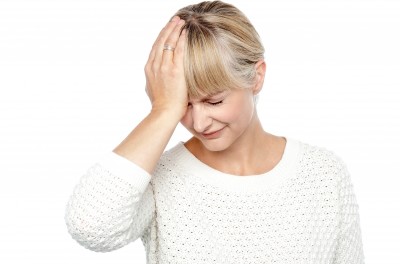Menopause: “The Change of Life”
It has been said that the only thing that remains constant is change. Changes in life take place every day. A flower blossoms and then withers. Clouds form and then it rains. A young girl turns into a woman, becomes a mother, and then later in life another change takes place – menopause.
Menopause, also known as the “change of life,” marks the end of a woman’s menstrual cycle and fertility. This occurs when the ovaries no longer produce estrogen and progesterone, the two hormones necessary for a woman’s reproductive cycle to function.
Though menopause occurs naturally with age, it may also come on suddenly as a result of a surgical procedure, treatment of a disease, or illness. In these cases it is referred to as induced menopause. During menopause, a woman would have her last menstrual period, usually around the age of 51. The time before and after this last menstrual period, the woman’s body goes through several changes, which can be divided into the four stages of menopause. Menopause and all its stages is not an illness, but a natural process in a woman’s body. The symptoms of menopause are just indicators of the changes going on between the ovarian hormones and those produced by the pituitary gland.
During late premenopause and the beginning of perimenopause, a woman’s ovaries become less responsive to stimulation of follicle-stimulating hormone (FSH), causing a decline in the amount of estrogen secreted in a woman’s ovaries. The symptoms often associated with menopause are actually part of perimenopause, which is the transitional stage between premenopause and menopause.
Perimenopause literally means “around menopause” and is a transitional stage of two to ten years before complete cessation of the menstrual period. It is usually experienced by women from 35 to 50 years of age. This stage of menopause is characterized by hormone fluctuations. Estrogen levels drop dramatically during perimenopause. The decline of estrogen results in a hormonal imbalance in a woman’s body and is responsible for the common menopause symptoms. At this stage, menstrual periods and ovulation become irregular, as hormone levels begin to fluctuate. These changes can vary from woman to woman, but most women will experience menopause symptoms at its worst during this time. Perimenopause can last up to five years. Pregnancy is still possible but less likely.
Estrogen levels will continue to remain low during postmenopause, thus raising new health concerns and exhibiting symptoms such as:
o Hot flashes
o Night sweats
o Vaginal dryness
o Mood swings
o Declining libido
o Weight gain
o Headaches
o Changes in hair quality
o Lack of energy
o Aging skin
o Depression
o Incontinence
o Irregular periods
o Breast tenderness
o Crashing fatigue
A woman has entered menopause when 12 successive months have passed without menstruation. The term menopause has often been mistakenly been referred to as the process of hormonal change that results in the end of menstruation and fertility, when in fact, it is the end stage of that process — the permanent cessation of a woman’s menstrual period. Menopause is the point at which estrogen and progesterone production decreases permanently to very low levels. In menopause the woman’s ovaries stop producing eggs and she can no longer able to get pregnant naturally.
Healthy living may help reduce the symptoms of menopause and its risks. Regular exercise may reduce the risk of heart attack and strengthen the bones and muscles. Relaxation and deep breathing exercises can help when hot flashes, the sudden feeling of warmth over the face, neck, and chest occurs. A diet rich in calcium and Vitamin D can help strengthen the bones and reduce the risk of osteoporosis and possible fractures. Taking calcium or Vitamin D supplements should be under the advice and supervision of a qualified physician since an excessive intake of such can be harmful. Overdosing on supplements and taking those contraindicated for certain medications and health conditions can be equally dangerous. So it is best to ask your doctor first and always check the recommended daily dosage of each supplement.
_____________________________________________________
References:
http://www.nejm.org/doi/full/10.1056/NEJMcp054015
http://www.epigee.org/menopause_new.html
http://www.menopause.org/expertadvice.aspx

